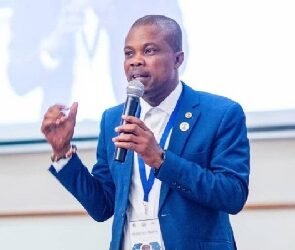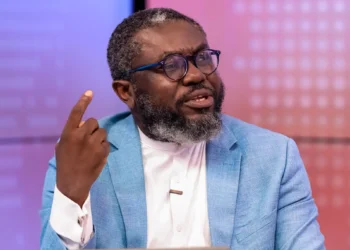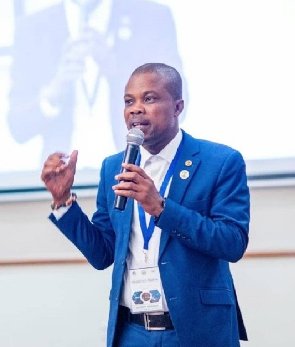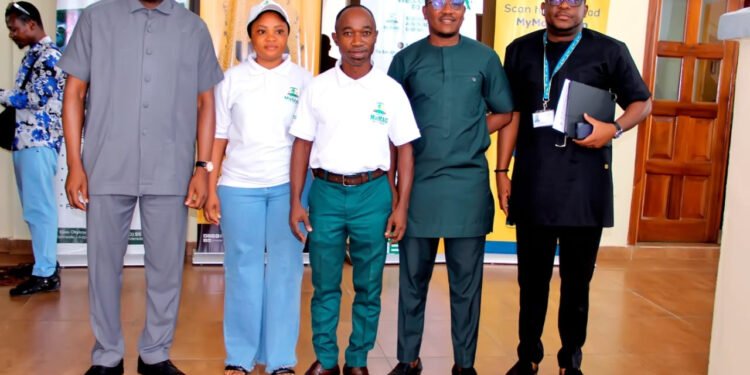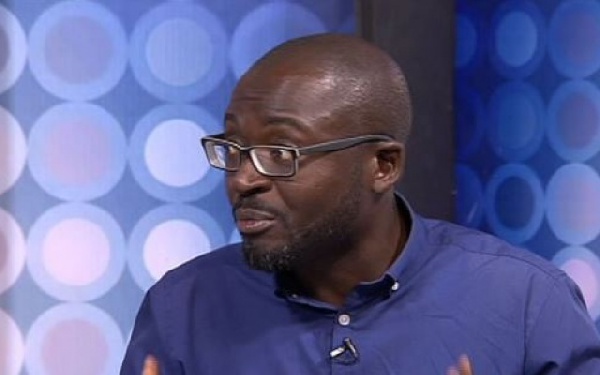On the occasion of International Youth Day, Professor John Osae-Kwapong, a Democracy and Development Fellow at the Ghana Center for Democratic Development (CDD-Ghana) and Project Director at The Democracy Project has delivered a powerful message to Ghanaian youth, urging them to renew their commitment to democratic governance.
As the world celebrates the potential, hopes, and challenges of its younger generation under the theme “From Clicks to Progress: Youth Digital Pathways for Sustainable Development,” Professor Osae-Kwapong called upon the youth of Ghana to critically reflect on their role in the country’s democratic journey.
“Today is International Youth Day. On this day, the world focuses attention on its youth – their hopes, and aspirations but also the many political, social, and economic challenges they face. It is a day where we renew our commitments and assure them of a brighter future. But it is also a day where the youth must renew their own commitments to themselves and society at large”.
Prof. John Osae-Kwapong, a Democracy and Development (D&D) Fellow at the Ghana Center for Democratic Development (CDD-Ghana) and the Project Director at The Democracy Project
A Shifting Sentiment Towards Democracy
Drawing from the rich data of Afrobarometer surveys, Professor Osae-Kwapong painted a vivid picture of the evolving sentiments of Ghana’s youth towards democracy.
He recalled the optimism of the early years following Ghana’s transition to multiparty democracy, adding that in the maiden Afrobarometer survey in 1999, the youth overwhelmingly expressed positive sentiments.
According to him, 80% of the youth during the 1999 Afrobarometer survey viewed the shift from military to multiparty democracy as favourable, while 78% supported the call for the President’s to adhere to the constitution, and 74% preferred democracy to any other form of government.
However, Dr Osae-Kwapong pointed out that the optimism has waned significantly over time, asserting that the 2022 Afrobarometer survey revealed a concerning decline in the youth’s confidence in the country’s democratic future.
“These positive sentiments were reinforced during Round 5 (2012) of the survey. On a scale between 0 (completely undemocratic) and 10 (completely democratic), here are the percentages of the youth who scored the country at least six out of ten points along the following dimensions – a) 59% (democratic compared to ten years ago); b) 66% (presently democratic); and c) 95% (democratic in the future). Preference for democracy grew significantly to 83% compared to 1999 and satisfaction with democracy also improved from 59% (Round 1, 1999) to 74% (Round 5, 2012).
“By the most recent round (2022) though, the positive sentiments among the youth had declined. Only 21% felt the country was somewhat/much more democratic compared to five years prior (2017). And when asked about the level of democracy in five years (2027), only 29% felt the country was going to be somewhat/much more democratic. Satisfaction with democracy declined to fifty per cent (50%) compared to where it stood among the youth in 2012. And from only 13% who felt positively about military rule in 1999, there was a significant increase to 29% in 2022” .
Prof. John Osae-Kwapong, a Democracy and Development (D&D) Fellow at the Ghana Center for Democratic Development (CDD-Ghana) and the Project Director at The Democracy Project
Challenges to the Youth
In response to these worrying trends, Professor Osae-Kwapong issued a five-pronged challenge to the youth, urging them to renew their commitment to democracy and take active steps to secure the future they desire.
Highlighting the importance of protecting the country’s democratic peace and stability, Professor Osae-Kwapong underscored the importance of safeguarding Ghana’s democratic peace and stability.
He acknowledged the growing dissatisfaction with the current state of democracy but warned against the allure of non-democratic alternatives.
He urged the youth to pledge an unwavering commitment to ensuring that Ghana’s democracy evolves to meet their hopes and aspirations.

Hold on to Faith in Democracy
Despite the challenges, Professor Osae-Kwapong encouraged the youth to maintain their faith in democracy.
He highlighted that 76% of the youth still believe democracy is preferable to any other form of government, and 84% support the use of elections to choose leaders, adding that even among those dissatisfied with democracy’s current state, 72% still prefer it over other systems.
These figures, he suggested, should serve as a springboard for the youth to work towards the democracy they envision.
Improve Civic Habits
Moreover, Professor Osae-Kwapong expressed concern over the low levels of civic participation among the Ghanaian youth, as reflected in the 2022 Afrobarometer survey.
“Democracies do not sustain themselves,” he noted, stressing that a vibrant civic culture is essential for ensuring accountable governance.
He called on the youth to improve their civic habits, stay informed, and actively communicate with public officers.
Eschew Partisan Politics
Additionally, Professor Osae-Kwapong warned against the dangers of extreme partisanship, which he described as a major hindrance to Ghana’s democratic progress.
He urged the youth to prioritize national interest over partisan loyalty, noting that while political parties play a crucial role in democracies, the current polarization must be avoided if the country is to achieve the democracy the youth desire.
Leverage Technology Positively
Finally, Professor Osae-Kwapong highlighted the potential of technology as a tool for positive change.
While acknowledging the benefits of technology in mobilizing and engaging citizens, he cautioned against its misuse.
He urged the youth to use technology responsibly, avoiding the pitfalls of misinformation and disinformation that could undermine democracy.
“Happy International Youth Day, May the youth of Ghana rise to the challenge and secure the democracy they hope for and deserve”, he concluded.
READ ALSO: Ghana Government Targets GH¢78 Billion Through T-Bill Issuance in Q3 2024




